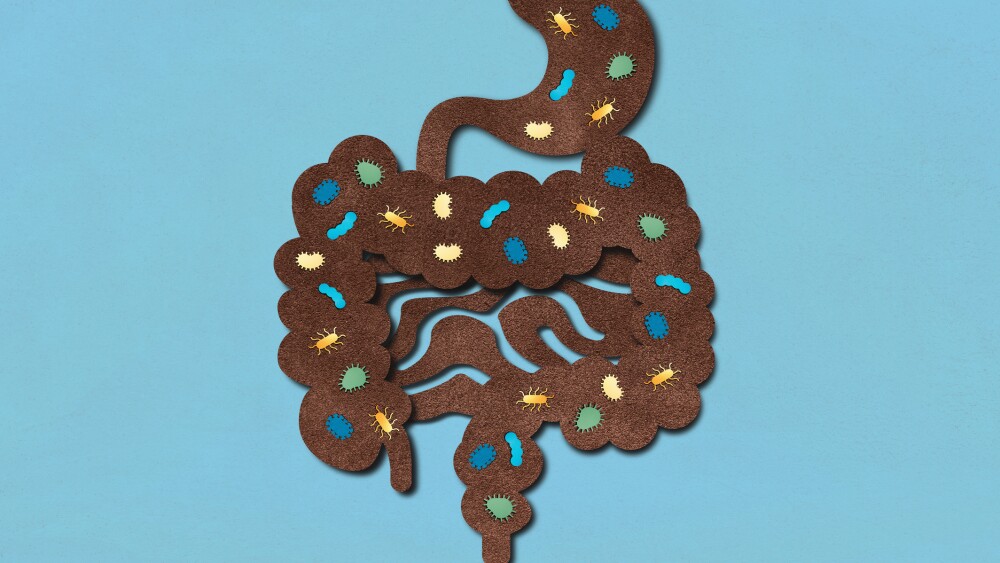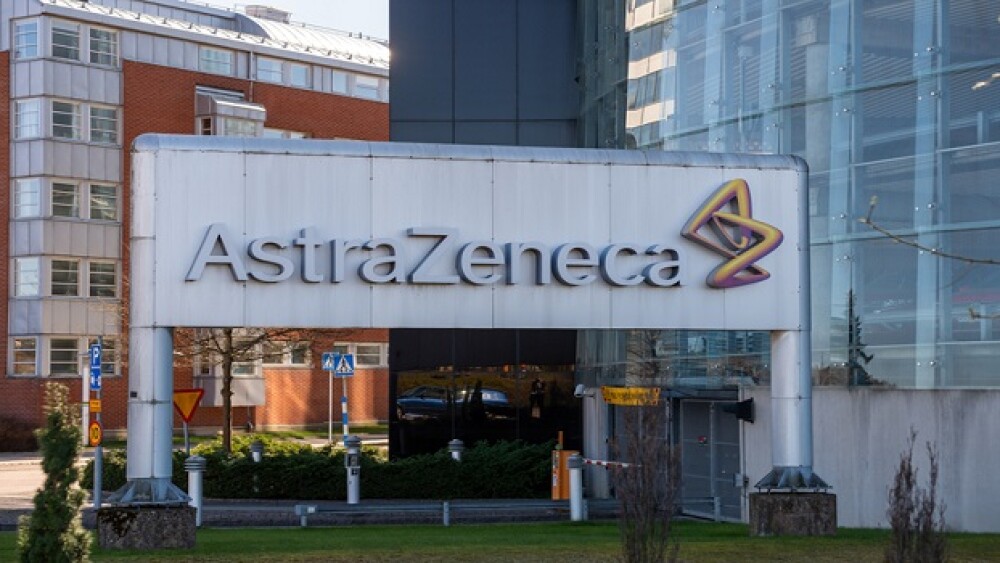Allogene Therapeutics, Inc. (Nasdaq: ALLO), a clinical-stage biotechnology company pioneering the development of allogeneic CAR T (AlloCAR T™) products for cancer, today presented interim data from its Phase 1 TRAVERSE trial of ALLO-316, the Company’s first AlloCAR TTM investigational product candidate for solid tumors, in an oral presentation at the American Association for Cancer Research (AACR) Annual Meeting in Orlando, Florida.
- Data Provide Proof-of-Concept for an Allogeneic Anti-CD70 CAR T Candidate in Patients with Renal Cell Carcinoma (RCC) Who Received Prior Immune Checkpoint Inhibitor and VEGF-Targeting Therapy
- Single Infusion of ALLO-316 Demonstrates Promising Anti-Tumor Activity in CD70 Expressing RCC
- Three of 10 Patients Achieved Partial Response
- Disease Control Rate of 100% in CD70 Expressing RCC
- Proprietary Dagger™ Technology, a component of Investigational ALLO-316, Is Designed to Confer Resistance to Allogeneic CAR T Cell Rejection and Contributes to Improved Cell Expansion and Persistence in Patients
- Dose Escalation Ongoing with New Investigational Diagnostic Assay In Place
SOUTH SAN FRANCISCO, Calif., April 17, 2023 (GLOBE NEWSWIRE) -- Allogene Therapeutics, Inc. (Nasdaq: ALLO), a clinical-stage biotechnology company pioneering the development of allogeneic CAR T (AlloCAR T™) products for cancer, today presented interim data from its Phase 1 TRAVERSE trial of ALLO-316, the Company’s first AlloCAR TTM investigational product candidate for solid tumors, in an oral presentation at the American Association for Cancer Research (AACR) Annual Meeting in Orlando, Florida. The presentation follows the release of initial ALLO-316 data reported at the Company’s R&D Showcase event in November 2022.
The ongoing Phase 1 TRAVERSE study is enrolling patients with advanced or metastatic renal cell carcinoma (RCC) who have progressed on standard therapies that include an immune checkpoint inhibitor and a VEGF-targeting therapy. Emerging data from this trial have demonstrated the potential of an AlloCAR T to treat CD70 expressing RCC. In this trial, ALLO-316 showed early anti-tumor activity with deepening responses over time.
“CAR T therapy has revolutionized the treatment of several hematologic malignancies, but its application to solid tumors has been an ongoing industry challenge,” said Zachary Roberts, M.D., Ph.D., Executive Vice President of Research & Development. “Early safety and efficacy data from the ongoing Phase 1 ALLO-316 dose escalation trial suggest the possibility for an off-the-shelf CAR T product to make inroads into solid tumors. Additionally, preliminary translational data confirm preclinical results showing the potential of our Dagger™ technology. This feature of ALLO-316 is designed to prevent premature AlloCAR T cell rejection, allowing marked cell expansion and persistence, even at low CAR T cell doses.”
“I am encouraged by these data highlighting the potential of an allogeneic CAR T as a new and much needed treatment modality for patients with renal cell carcinoma,” said Samer A. Srour, M.D., The University of Texas MD Anderson Cancer Center. “Initial data from the TRAVERSE trial provides a proof-of-concept for the successful application of this novel CAR T product in the treatment of advanced renal cell carcinoma.”
As of the March 23, 2023 data cutoff, 19 patients were enrolled in the Phase 1 trial, 10 of whom had RCC confirmed to express CD70. The median time from enrollment to the start of therapy was five days. In the ongoing dose escalation phase of the TRAVERSE trial, patients will receive lymphodepletion followed by ALLO-316 at one of four cell dose levels (DL1= 40M cells, DL2= 80M cells, DL3=120M cells, DL4= 240M cells). The data reported to date is primarily from the DL1 and DL2 cohorts.
Anti-tumor activity was primarily observed in patients with tumors confirmed to express CD70.
Among 18 patients evaluable for efficacy, the disease control rate (DCR) was 89%. In the 10 patients whose tumors were known to express CD70, the disease control rate was 100%, which included three patients who achieved partial remission (two confirmed, one unconfirmed). The longest response lasted until month eight. There was a trend toward greater tumor shrinkage in patients with higher levels of CD70 expression.
| All Patients (n=18) | CD70+ Patients (n=10) | |
| Overall Response Rate (ORR), n (%) | 3 (17) | 3 (30) |
| Disease Control Rate (DCR), n (%) | 16 (89) | 10 (100) |
There were 19 patients evaluable for safety. To date, ALLO-316 has demonstrated an adverse event profile generally consistent with autologous CAR T therapies. One dose-limiting toxicity of Grade 3 autoimmune hepatitis occurred in the second dose level. Cytokine release syndrome (CRS) was all low-grade with the exception of one Grade 3. Neurotoxicity, which is now defined more broadly, was generally low grade and reversible with most events being fatigue or headache. There were no cases of immune effector cell-associated neurotoxicity syndrome (ICANS). Infections occurred in eight patients of which four were Grade 3+ including one Grade 5 respiratory failure due to Covid-19 infection deemed unrelated to study treatment. Grade 3+ prolonged cytopenia was observed in three patients (16%). There were no cases of graft-versus-host disease (GvHD).
| All Patients (n=19) | ||
| All Grades N (%) | Gr 3+ N (%) | |
| CRS | 11 (58) | 1 (5) |
| Infusion-Related Reaction | 1 (5) | 0 |
| Neurotoxicity | 13 (68) | 2 (11) |
| ICANS | 0 | 0 |
| GvHD | 0 | 0 |
| Infection | 8 (42) | 4 (21) |
| Prolonged Gr3+ Cytopenia | 0 | 3 (16) |
The Dagger technology, which is a feature of ALLO-316, is designed to resist rejection of AlloCAR T cells by the host immune cells, thereby supporting expansion and enabling a prolonged window of persistence during which AlloCAR T cells can target and destroy cancer cells. Initial translational data from the TRAVERSE trial demonstrates the suppression of host T cells and marked peak expansion of ALLO-316 despite the relatively low cell doses tested. In addition to ALLO-316, the Company plans to deploy Dagger technology to potentially enhance the persistence and activity of next generation AlloCAR T products.
About ALLO-316 (TRAVERSE)
ALLO-316, an AlloCAR T™ investigational product targets CD70, which is highly expressed in renal cell carcinoma (RCC). CD70 is also selectively expressed in several cancers, creating the potential for ALLO-316 to be developed across a variety of both hematologic malignancies and solid tumors. The ongoing Phase 1 TRAVERSE trial is designed to evaluate the safety, tolerability, and activity of ALLO-316 in patients with advanced or metastatic clear cell RCC. In March 2022, the U.S. Food and Drug Administration granted Fast Track Designation (FTD) based on the potential of ALLO-316 to address the unmet need for patients with difficult to treat RCC who have failed standard RCC therapies.
About Allogene Therapeutics
Allogene Therapeutics, with headquarters in South San Francisco, is a clinical-stage biotechnology company pioneering the development of allogeneic chimeric antigen receptor T cell (AlloCAR T™) products for cancer. Led by a management team with significant experience in cell therapy, Allogene is developing a pipeline of “off-the-shelf” CAR T product candidates with the goal of delivering readily available cell therapy on-demand, more reliably, and at greater scale to more patients. For more information, please visit www.allogene.com, and follow @AllogeneTx on Twitter and LinkedIn.
Cautionary Note on Forward-Looking Statements for Allogene
This press release contains forward-looking statements for purposes of the safe harbor provisions of the Private Securities Litigation Reform Act of 1995. The press release may, in some cases, use terms such as “continue,” “designed,” “indicate,” “may,” “possible,” “potential,” “preliminary,” “suggest,” “will” or other words that convey uncertainty of future events or outcomes to identify these forward-looking statements. Forward-looking statements include statements regarding intentions, beliefs, projections, outlook, analyses or current expectations concerning, among other things: the potential for an AlloCAR T to treat CD70 expressing RCC; the possibility of ALLO-316 to make inroads as an off-the-shelf product into solid tumors; the design and potential benefits of our Dagger technology; the Company’s plan to deploy Dagger technology to enhance the persistence and activity of next generation AlloCAR T products; the potential for ALLO-316 to be developed across a variety of both hematologic malignancies and solid tumors; the potential for our product candidates to be approved; and the potential benefits of AlloCAR T products. Various factors may cause material differences between Allogene’s expectations and actual results, including, risks and uncertainties related to: our product candidates are based on novel technologies, which makes it difficult to predict the time and cost of product candidate development and obtaining regulatory approval; the limited nature of our Phase 1 data from our clinical trials and the extent to which such data may or may not be validated in any future clinical trial; our ability to maintain intellectual property rights necessary for the continued development of our product candidates, including pursuant to our license agreements; our product candidates may cause undesirable side effects or have other properties that could halt their clinical development, prevent their regulatory approval or limit their commercial potential; the extent to which COVID-19 adversely impacts our business, including our clinical trials; the extent to which the FDA disagrees with our regulatory plans, which could cause future delays to our clinical trials; we may encounter difficulties enrolling patients in our clinical trials; we may not be able to demonstrate the safety and efficacy of our product candidates in our clinical trials, which could prevent or delay regulatory approval and commercialization; challenges with manufacturing or optimizing manufacturing of our product candidates; and our ability to obtain additional financing to develop our products and implement our operating plans. These and other risks are discussed in greater detail in Allogene’s filings with the SEC, including without limitation under the “Risk Factors” heading of its Form 10-K for the year ended December 31, 2022. Any forward-looking statements that are made in this press release speak only as of the date of this press release. Allogene assumes no obligation to update the forward-looking statements whether as a result of new information, future events or otherwise, after the date of this press release.
AlloCAR T™ and Dagger™ are trademarks of Allogene Therapeutics, Inc.
Allogene’s AlloCAR T™ programs utilize Cellectis technologies. The anti-CD70 AlloCAR T program is licensed exclusively from Cellectis by Allogene and Allogene holds global development and commercial rights to this AlloCAR T program.
Allogene Media/Investor Contact:
Christine Cassiano
Chief Communications Officer
(714) 552-0326
Christine.Cassiano@allogene.com






